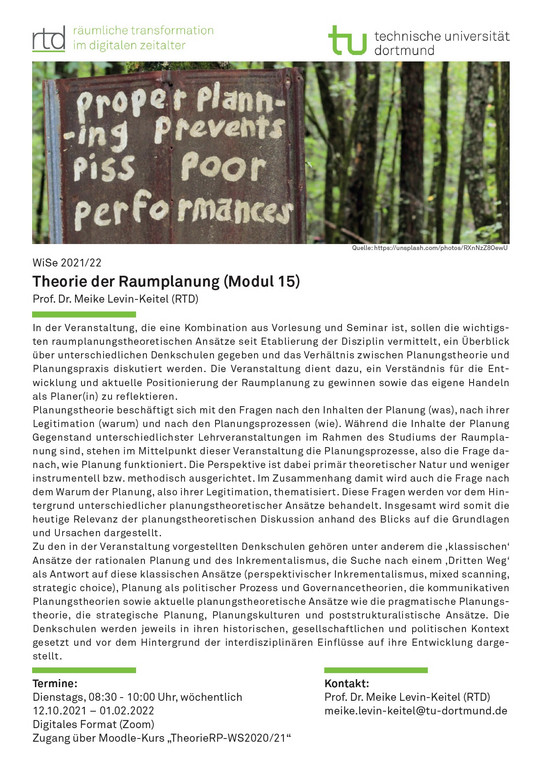Theory of spatial planning
In this course, which is a combination of lecture and seminar, the most important theoretical approaches to spatial planning since the establishment of the discipline will be presented, an overview of different schools of thought will be given and the relationship between planning theory and planning practice will be discussed. The course serves to gain an understanding of the development and current positioning of spatial planning as well as to reflect on one's own actions as a planner.
Planning theory deals with the questions of the content of planning (what), its legitimacy (why) and the planning processes (how). While the content of planning is the subject of a wide variety of courses in the study of spatial planning, the focus of this course is on planning processes, i.e., the question of how planning works. The perspective is primarily theoretical and less instrumental or methodological. In connection with this, the question of the why of planning, i.e. its legitimacy, will also be addressed. These questions are addressed against the background of different approaches to planning theory. Overall, the current relevance of the discussion on planning theory will thus be presented by looking at its foundations and causes.
The schools of thought presented in the course include the 'classical' approaches of rational planning and incrementalism, the search for a 'third way' as an answer to these classical approaches (perspective incrementalism, mixed scanning, strategic choice), planning as a political process and governance theories, the communicative planning theories as well as current planning theoretical approaches such as pragmatic planning theory, strategic planning, planning cultures and poststructuralist approaches. The schools of thought will each be placed in their historical, social, and political context and presented against the background of the interdisciplinary influences on their development. Short presentations will also be used to show examples that are representative of the transfer of the respective theoretical approaches into planning practice.
More detailed explanations on the structure and the course will follow at the beginning of the event.



